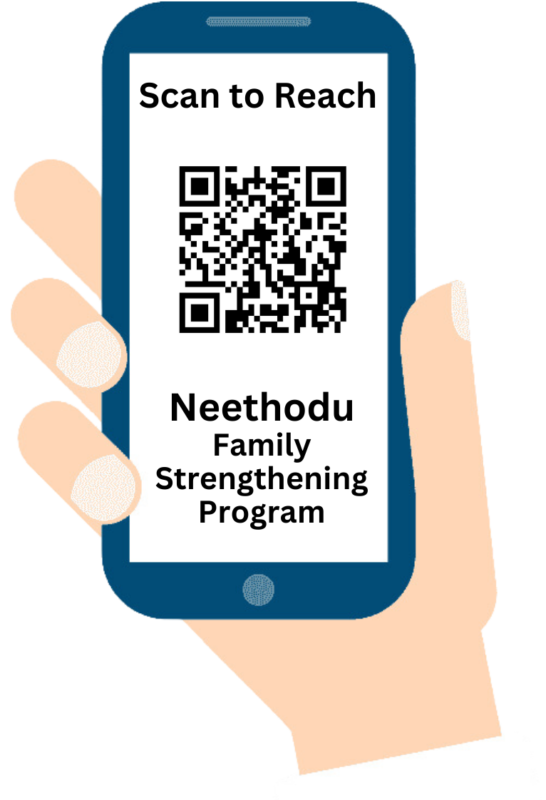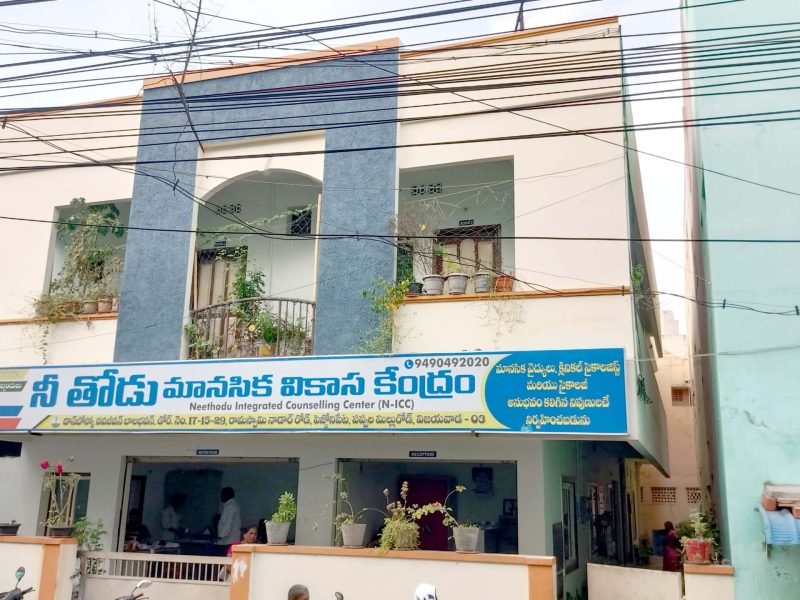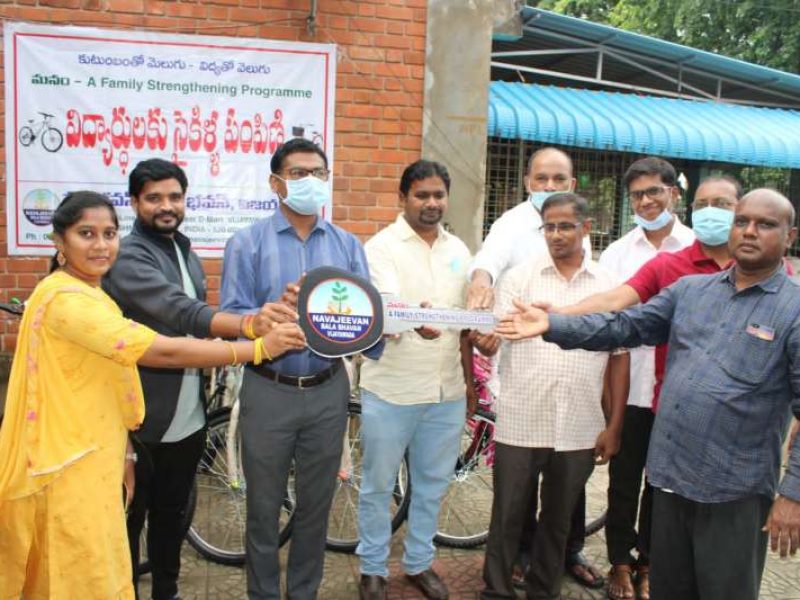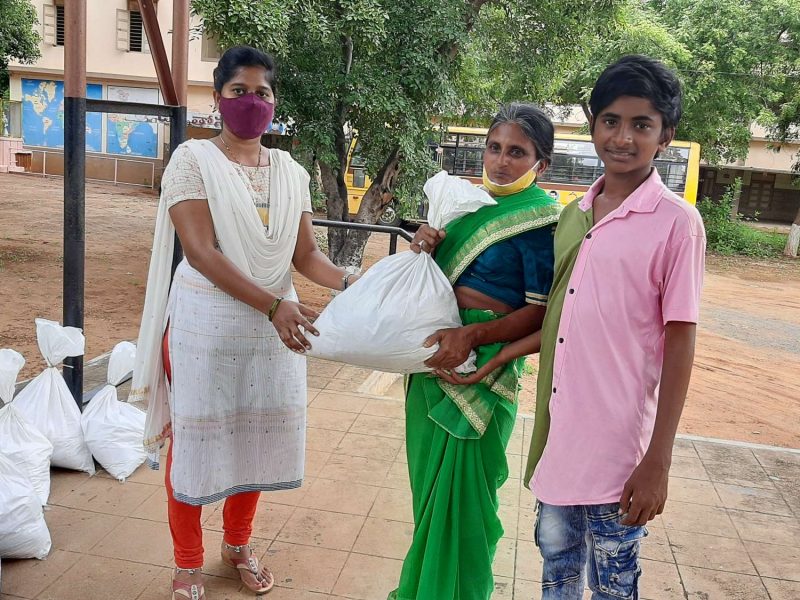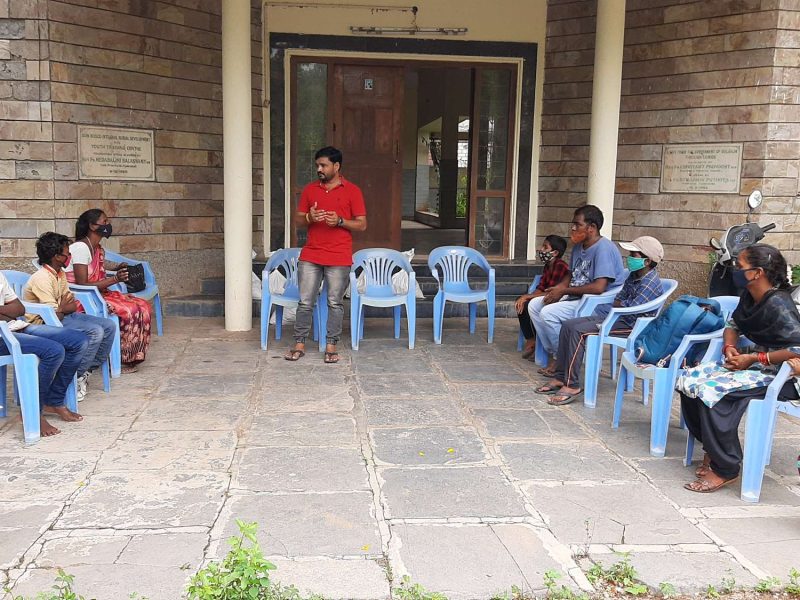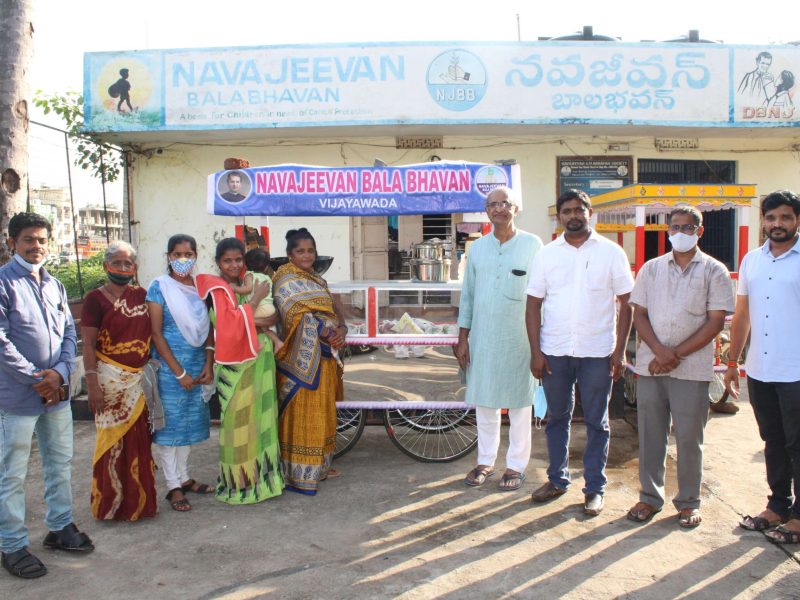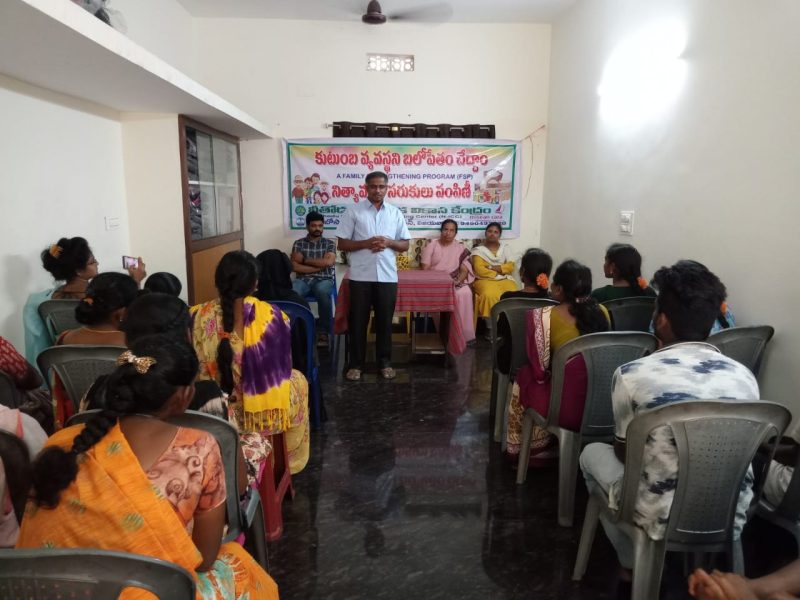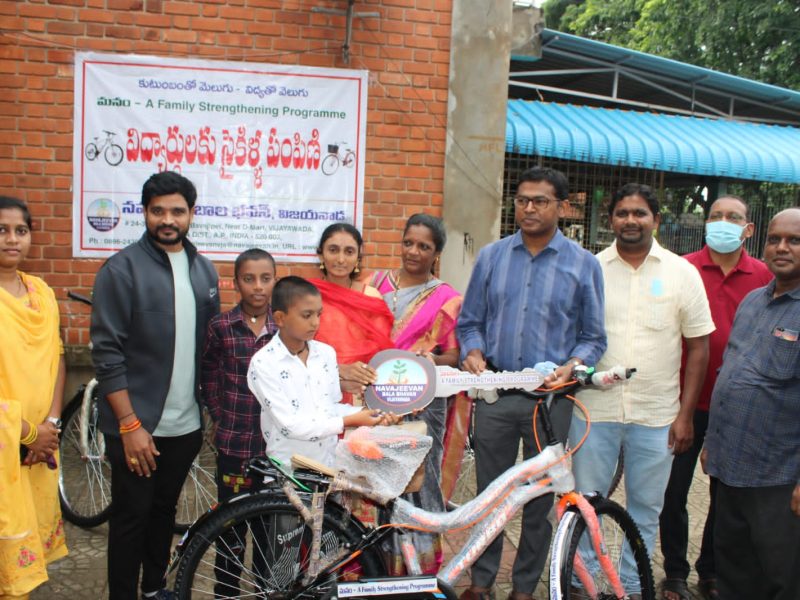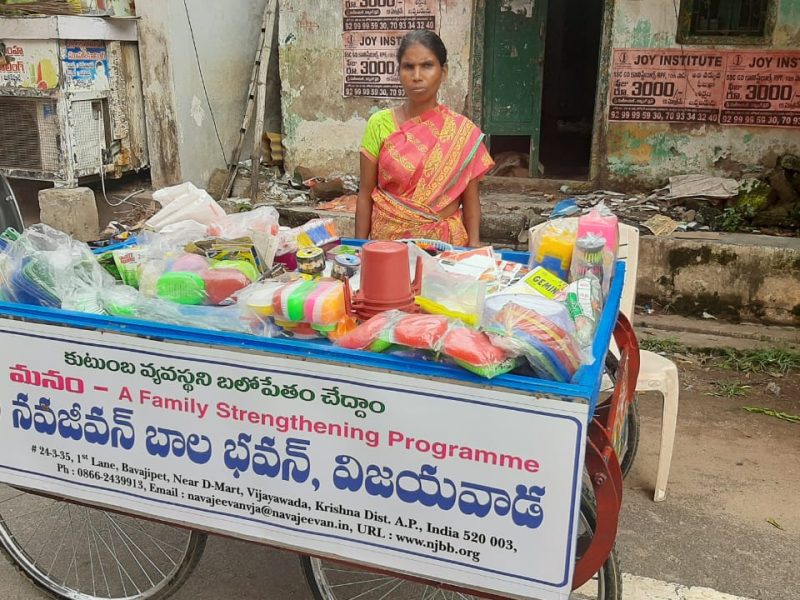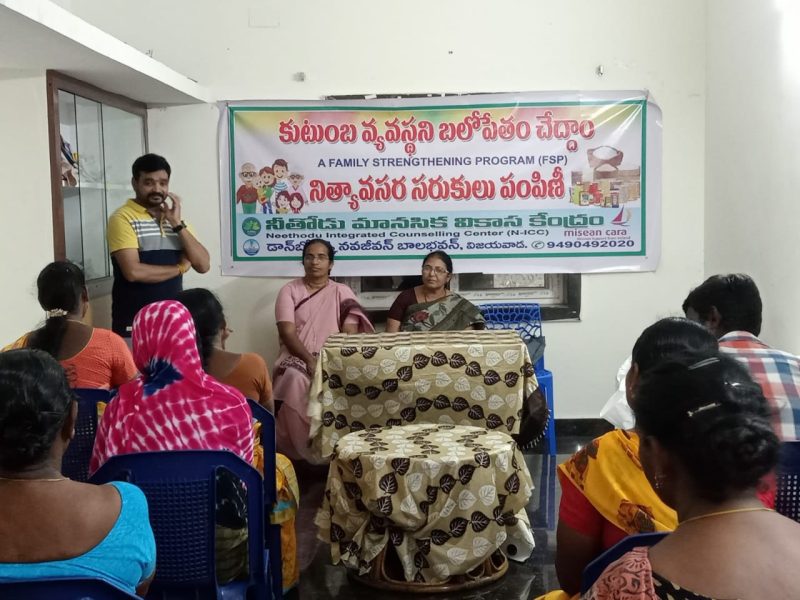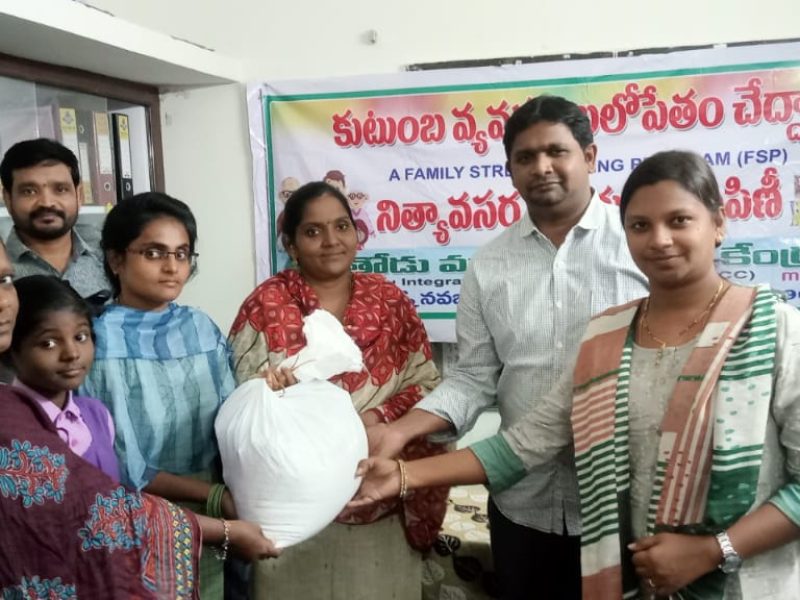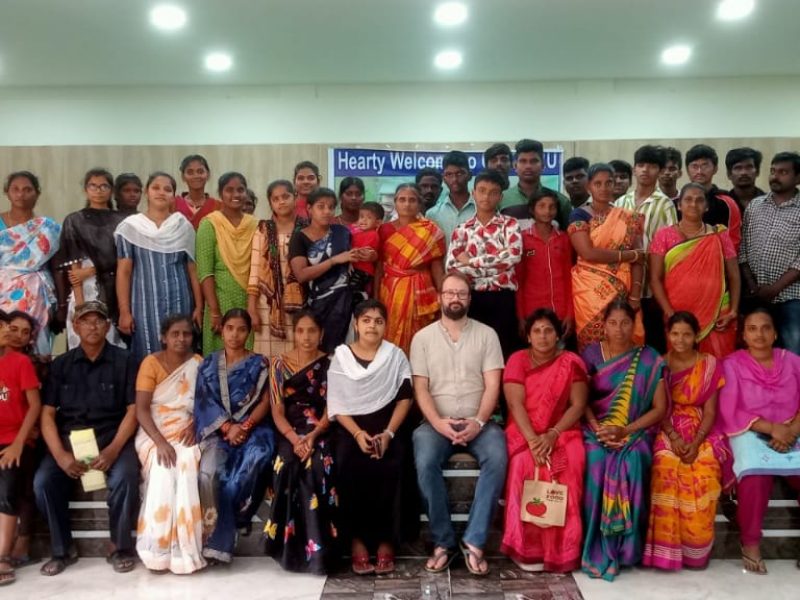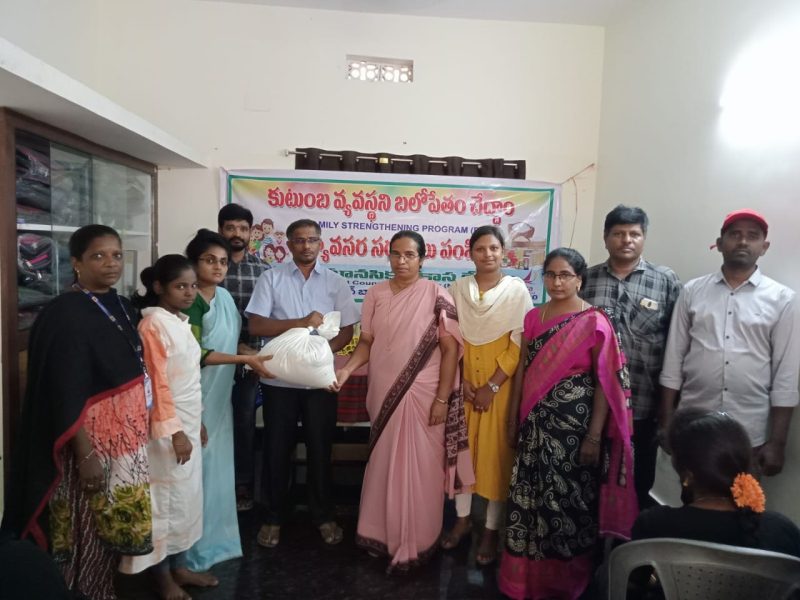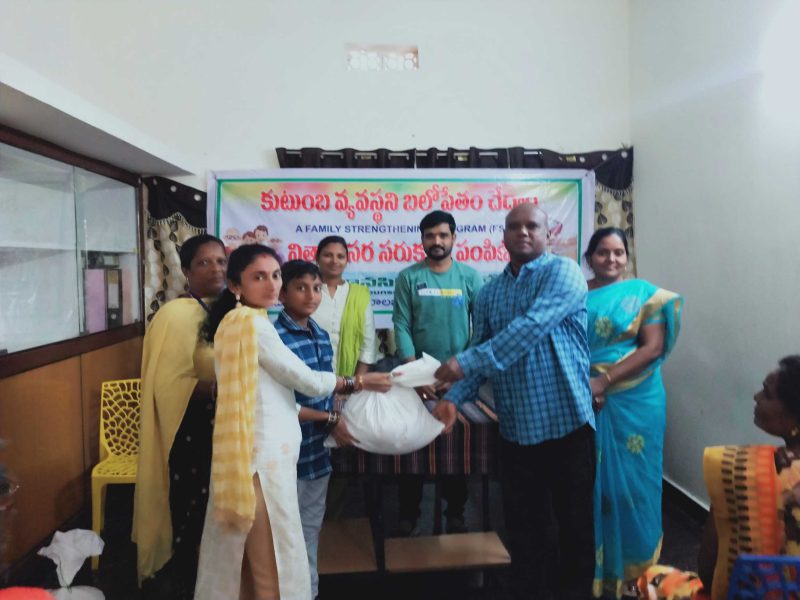NAVAJEEVAN BALA BHAVAN
Neethodu FSP
MANAM (‘We’):FAMILY STRENGTHENING PROGRAMME (FSP)
Imbibing the spirit of UN CRC and Guidelines, Constitution, National Policy for Children 2013, JJ ACT 2015 and Rules 2016, etc, Navajeevan firmly believes that, if supported and strengthened, even a marginalized family, being the basic component of society, becomes the natural environment for the growth, well-being and protection of children; that a child should not be separated from parents, except where such separation is necessary in the best interest of the child for various reasons.
Navajeevan hence, as part of repositioning, undertakes efforts towards family strengthening – equipping the leaders of the target communities and families, with information and skills on various legislation, case laws, govt schemes/programmes, etc. Thereby enable them to organize, demand and access their rights and entitlements, with special focus on child/women rights.
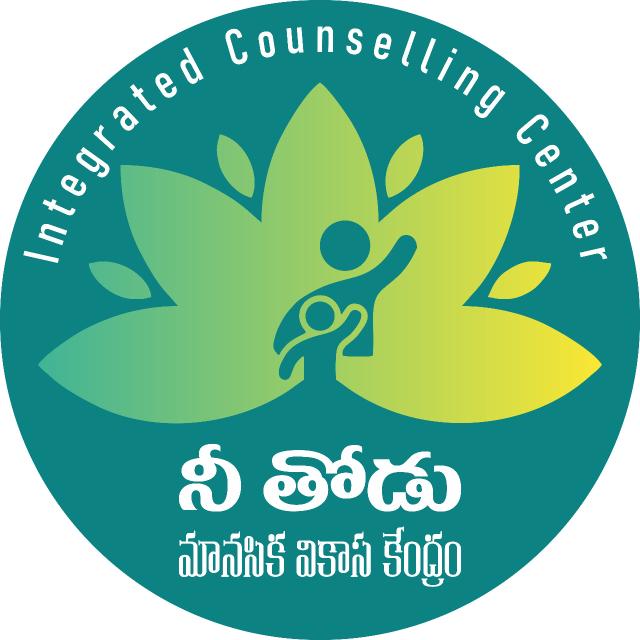
The FSP includes socio-economic-technical support:
1. Socio:
- Awareness creation on child’s need for biological/natural family (and alternative forms of care when there is no parental family support for the child)
- Sensitization of the duty bearers and the public at large on the significance of Family Strengthening &the significance of safeguarding the child against child abuse, child marriage, child labour, child trafficking etc, among the public, officials and the parents/extended family members
- Ongoing efforts of home-integration to reunite the child with biological parents or with the extended family as the case may be, etc
2. Economic:
- Facilitating sponsorships and benefits under Govt’s various educational and other social security schemes
3. Technical:
- Capacity building of parents and close family members (kinship care) in parenting skills including positive discipline
- Enable the parents/close family members to respond to the developmental/emotional issues pertained to the child
- Provides/facilitates counselling through family visit and school follow up
- Facilitate referrals/professional support when child is identified with a special need
- Facilitate basic life/identity documents required for child/family to obtain support from Govt
- Arrange legal support, as required, to obtain the inherited property for the child/family, etc
In spite of the best efforts by the state and the community, when a situation so arises to separate the child from the family, the child is received into Navajeevan’s direct/residential care but on a temporary basis, following the prescribed legal process. The child is accommodated in family style group care homes, providing opportunities of education/skill training & emotional support. Nonetheless, Navajeevan continues its efforts to prepare the child and strengthen the family for reunification with parents or the extended family. When that not possible, the child is motivated for family foster care, or adoption especially in the case of an orphan.
After the placement of children back to families, Navajeevan did continue the contact with children as well as providing provision kits to the most needy families, health/medical aid, etc.
In the month of June 2020, with the help of a survey tool, Navajeevan team conducted a Counselling cum Family Survey, visiting the parents or contacting the extended family members and made an assessment of the situation at home.
During the Survey, the team could not make contact with 40 families of children placed with families during the COVID lockdown. These families either went back to their native villages during the lockdown due to loss of livelihood and the other hardships, or inverse, some of them might have migrated to other places from their native villages in search of livelihood.
After the survey, the concerned team leaders and coordinators discussed the findings about children on one-to-one basis. Also, the Executive Director advised the team to undertake re-verification visits to some of the families and discussion with some of the children, so that right decisions are taken in the best interest of the child regarding their future while ensuring non-discrimination. There was also a meeting of the parents/close family members.
Finally, the team could evolve a participatory ‘Child Wise Plan’ with respect to 388 children, categorizing them into those who required “Full Support” & “Partial Support” & “No Support” and decided accordingly to continue provide varied forms of support as per the following definitions of the three Categories:
- 1. The term “Full Support” denotes those children to be retained under Navajeevan’s direct care in Group Care Homes with Navajeevan as the Fit Facility
- 2. “Partial Support” (33 Families/42 Children) means those children placed back with families but with continued partial economic-technical-social-emotional-legal support of Navajeevan. This include partial financial report as required on one-to-one basis & counselling/emotional & school follow up; facilitation to obtain basic documents and benefits under various Govt’s schemes, sponsorship, etc
- 3. “No Support” (132 Families/164 Children) denotes those children who are home placed but their families are willing to provide whatever support required for the child. Even here, Navajeevan team will continue to provide socio-technical support (except financial).
In collaboration with GOs and the likeminded local NGOs, all the 165 families/206 children, have to be followed up so that they are not forced into child labour, child marriage, or fallen victims to domestic violence and other forms of abuse, or to trafficking for domestic child labour, industrial/agricultural labour, or child sex work, etc. This intervention is very much relevant during and post COVID scenario as the families may tend to fall under these traps due to the loss of livelihoods, increased financial constraints and the acute poverty therewith.
Though the concept of the Family Strengthening (FS) primarily applies to the children who are home-integrated (those under categories of “partial Support” & “No Support”), it also applied to the category of children under “Full Support”/Navajeevan’s direct care in family style Group Care Homes or Foster families. This means that, from the very beginning when a child is placed under Navajeevan’s direct care, its team should undertake efforts to create a conducive atmosphere in the biological/extended family for a child to be re-united; if that not possible, to prepare the child for placement in a foster family, or for adoption especially in the case of orphans. Whatever may be the case, Navajeevan firmly believes that the Institutional Care is more harmful for the child’s growth and wellbeing, and hence, to be avoided.
